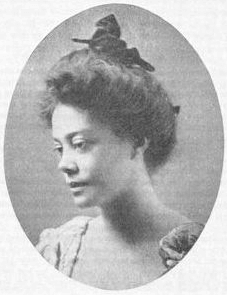VOTES FOR WOMEN
- Program
- Subject
- Location
- Lat/Long
- Grant Recipient
-
National Votes for Women Trail
-
People
- 1310 N French St, Wilmington, DE 19801, USA
- 39.747588, -75.5437929
-
National Collaborative for Women's History Sites
VOTES FOR WOMEN
Inscription
VOTES FOR WOMENALICE DUNBAR-NELSON,
1875-1935. TEACHER, AUTHOR,
CIVIL RIGHTS LEADER. ELECTED
PRESIDENT EQUAL SUFFRAGE
STUDY CLUB 1914. LIVED HERE.
WILLIAM G. POMEROY FOUNDATION 2021
Alice Dunbar-Nelson (1875-1935), teacher, author, and civil rights leader, once lived in Wilmington at 1310 North French Street. Married to famed writer Paul Lawrence Dunbar, Alice Dunbar-Nelson was proponent of women’s suffrage as well as an advocate of civil rights for African Americans. She utilized her skills as a writer and speaker to raise awareness and to educate the public. In 1914, Dunbar-Nelson was elected as president of the Equal Suffrage Study Club. The study club’s mission was “to effect an organization with the idea of arousing interest in the suffrage movement among colored women, and to conduct a campaign of education among them,” per a March 21, 1914 article of The Morning News.
In the years that followed, Dunbar-Nelson was politically active and continued to highlight social issues affecting African Americans and women. Sadly, on September 18, 1935 Alice Dunbar-Nelson passed away at the age of 60 from a heart condition. Her obituary, featured in a September 19, 1935 edition of The News Journal, detailed her accomplishments:
She was educated at Straight College, New Orleans, the University of Pennsylvania and Cornell University. From 1902 to 1920 she was the head of the English department at Howard High School. Mrs. Nelson was also a parole worker and teacher at the Industrial School for Colored Girls at Marshalton from 1924 to 1928; executive secretary of the American Inter-racial Peace Committee in Philadelphia from 1926 to 1931; associate editor of the A.M.E. Church Review and editor of the Wilmington Advocate. Mrs. Nelson was a former member of the Republican State Committee of Delaware and was the first Negro woman in the country to be named to such a political post. She had been living in Philadelphia for the past three years. She contributed to innumerable papers, magazines and periodicals over a long period of years She was active in club and political affairs being a member of the National Federation of Women’s Clubs, League of Independent Political Action the N.A.A.C.P., the I.B P.O.E.W. and the Delta Sigma Theta National Sorority.
Through the efforts of women like Alice Dunbar-Nelson, women’s suffrage was made a reality for future generations.


